For vegans, eliminating all animal-derived products from their diet is essential. However, the need to supplement their gut with beneficial bacteria remains crucial. Yogurt, a common source of probiotics, is not an option due to its animal-based origin. So, what alternatives are there for vegans to promote a healthy gut?
1 Gut-Friendly Foods for Vegans
Nutrition plays a pivotal role in maintaining gut health. Adopting a balanced and nutritious diet is crucial, especially for those following a vegan lifestyle. A healthy gut microbiome improves nutrient absorption, boosts immunity, and protects against diseases.
According to Dr. Tran Thi Bich Nga, former lecturer in Nutrition at Hanoi Medical University, vegans should incorporate the following foods into their diet to promote a healthy gut:
-
Fiber-rich foods: Fiber acts as food for beneficial bacteria in the gut, aiding their growth and activity. Good sources of fiber include whole grains, fruits, vegetables, and legumes.
-
Prebiotic-rich foods: Prebiotics are essential nutrients that nourish and stimulate the growth of beneficial bacteria in the gut. Examples include garlic, onion, asparagus, leeks, and artichokes.
-
Fermented foods: Fermented foods are rich in naturally occurring probiotics, which help balance the gut microbiome. Examples include sauerkraut, kimchi, miso, and tempeh.
While animal-based yogurt is off the menu for vegans, there are plant-based alternatives that can provide a similar boost of beneficial bacteria to the gut.
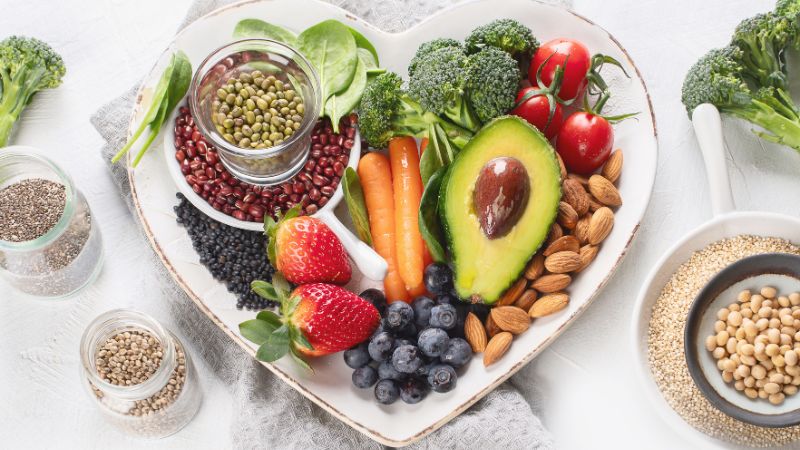 Gut-friendly foods for vegans
Gut-friendly foods for vegans
2 Plant-Based Yogurt Options
Soy Yogurt
Made primarily from soy milk and soy beans, soy yogurt offers a creamy, delicious taste and numerous health benefits.
Nutritionally, soy yogurt contains similar levels of protein to cow’s milk and provides essential amino acids. Notably, it has a lower saturated fat content, benefiting cardiovascular health.
Soy yogurt is a superb choice for those allergic to dairy or adhering to a vegan diet. A serving provides equivalent nutrition to dairy yogurt, promoting gut health, boosting immunity, and supporting healthy digestion.
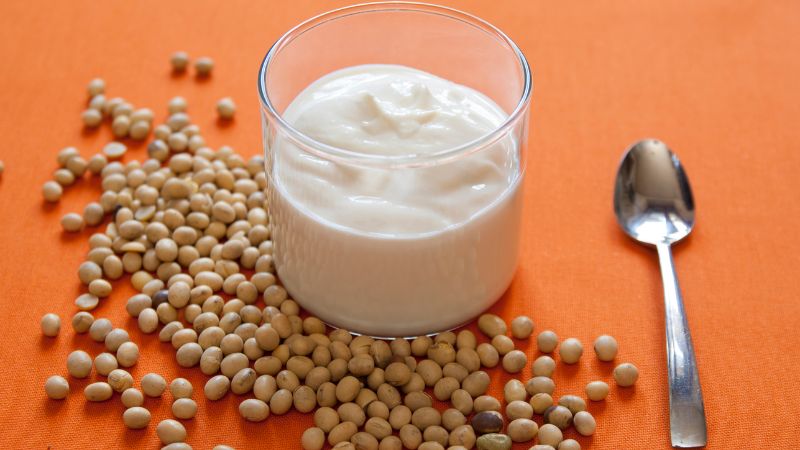 Soy Yogurt
Soy Yogurt
Cashew Yogurt
Cashew yogurt is a wonderful vegan alternative, offering a rich, creamy texture and a bounty of nutrients. With its high protein and calcium content, it supports healthy digestion.
 Cashew Yogurt
Cashew Yogurt
Almond Yogurt
Crafted from pure almond milk, almond yogurt delights with its creamy texture and subtly tangy flavor.
Furthermore, almond yogurt is a superb source of vitamins, calcium, and phosphorous, especially beneficial for vegans. Regular consumption boosts immunity, aids digestion, and promotes heart health.
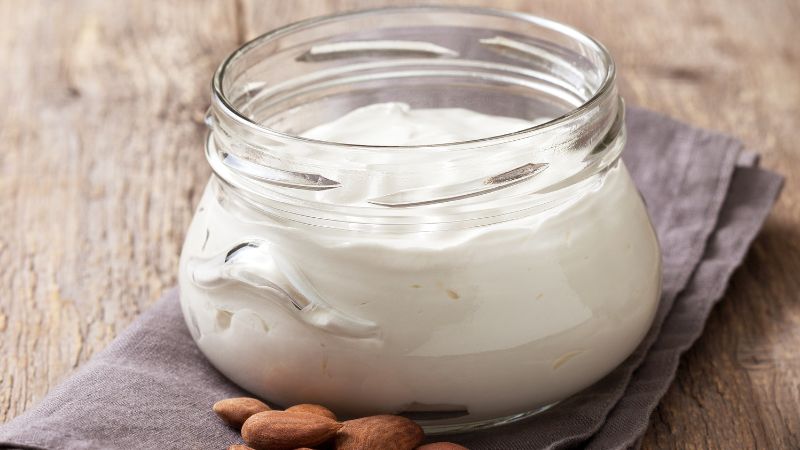 Almond Yogurt
Almond Yogurt
Coconut Yogurt
Coconut yogurt, made from pure coconut milk and natural ingredients, offers an indulgent, creamy experience.
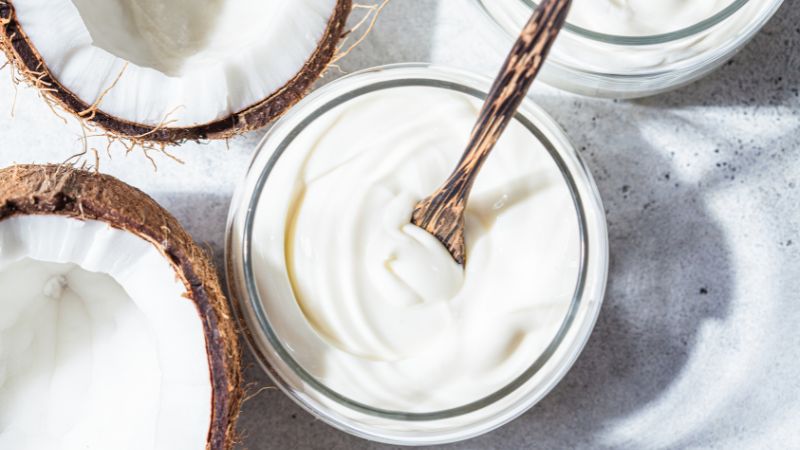 Coconut Yogurt
Coconut Yogurt
3 Other Plant-Based Probiotic Foods
Sauerkraut
Sauerkraut, a traditional dish made from fermented cabbage, is popular worldwide. It offers a crisp, tangy taste and is rich in vitamins C, B, and K, as well as fiber, all beneficial to health.
Making sauerkraut is simple: shred cabbage, brine it in salt, and ferment it at the right temperature. Enjoy it as a side dish, on sandwiches, or in salads.
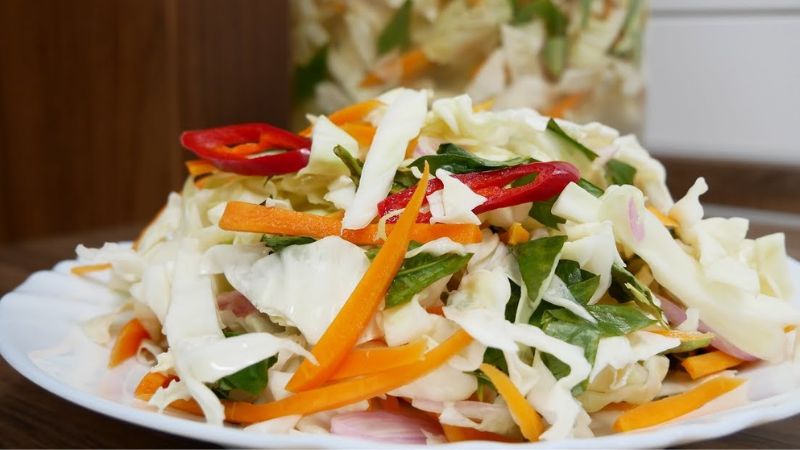 Sauerkraut
Sauerkraut
Kimchi
Kimchi, a famous Korean delicacy, is made from fermented napa cabbage, spicy peppers, and various seasonings. It is loaded with vitamins, antioxidants, and probiotics, benefiting digestion.
The process of making kimchi is more intricate, involving multiple ingredients and characteristic spices. It is commonly enjoyed with rice, soup, or incorporated into other dishes.
 Kimchi
Kimchi
Tempeh
Tempeh is a fermented soybean product, popular in vegan and macrobiotic cuisines. It is rich in protein, vitamins, minerals, and probiotics, promoting heart, digestive, and immune health.
Fermentation enhances the nutritional value of soybeans, giving tempeh its unique flavor. It is versatile and can be used in salads, stir-fries, stews, and more.
 Tempeh
Tempeh
Pickled Vegetables
Pickled vegetables are a beloved snack or side dish, offering a tangy crunch and a host of health benefits. Prepared by fermenting vegetables in brine, they create an ideal environment for beneficial bacteria (probiotics) to thrive.
Pickled vegetables are a rich source of probiotics, supporting digestion, boosting immunity, and enhancing overall health.
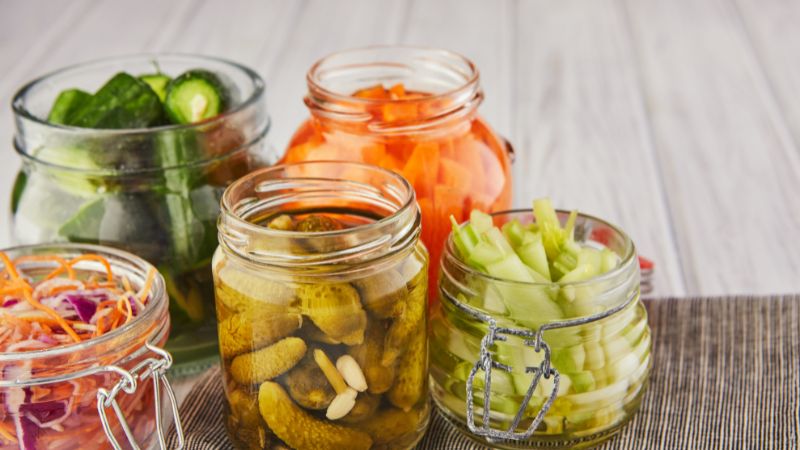 Pickled Vegetables
Pickled Vegetables
A vegan diet offers numerous health benefits, including improved digestion. Choosing the right foods is key to maintaining gut health for vegans.
Source: Sức khỏe và Đời sống Newspaper
Eliminate Alcohol from Your Breath by Indulging in Fermented Foods
 Fermented Foods’>
Fermented Foods’>Some types of food, beverages, fermented drinks, cough syrups, flu remedies, mouthwash solutions… can cause the breath to have alcohol content.


































